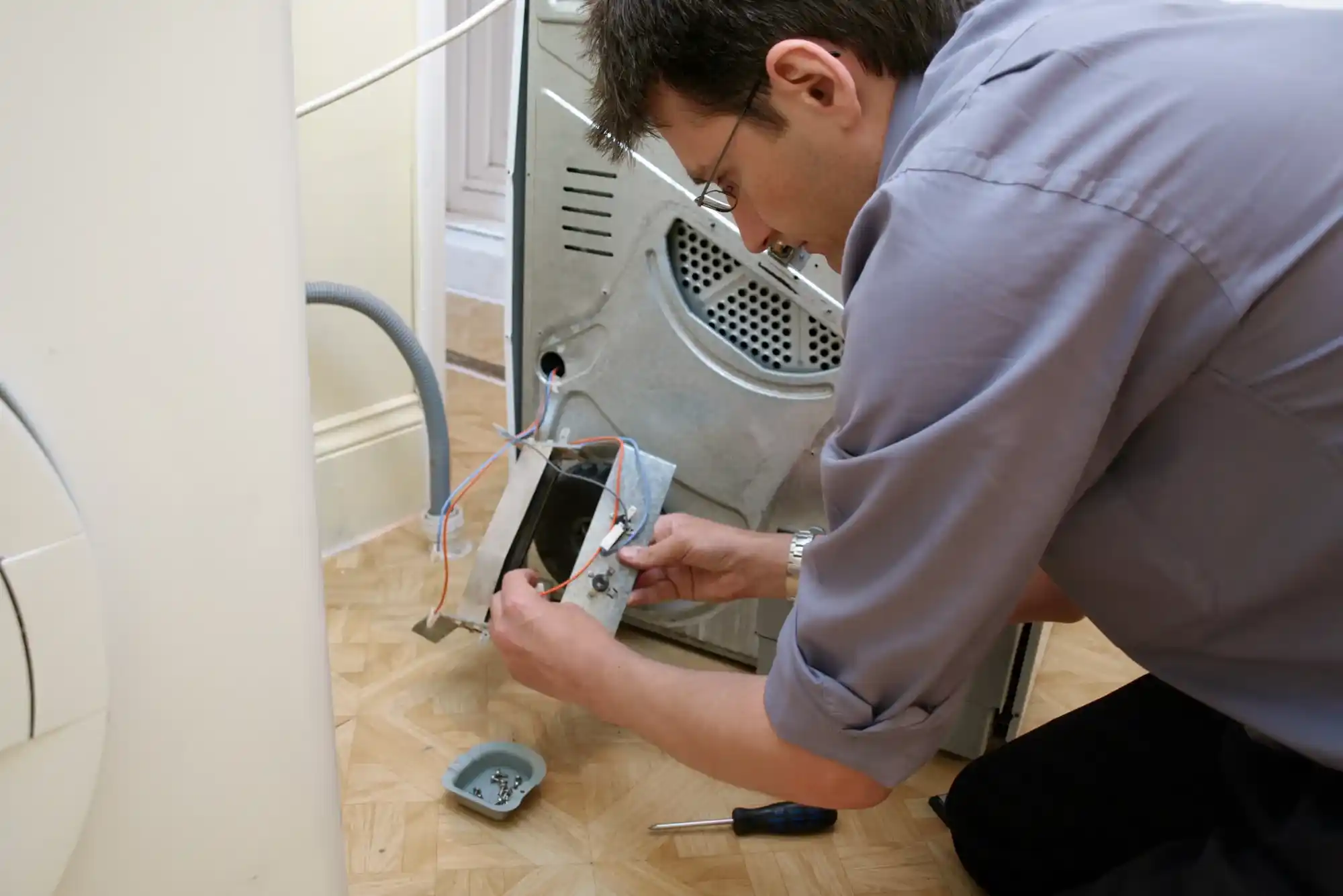Introduction
Front-load washing machines are known for their efficiency, water conservation, and powerful cleaning abilities. However, they are also prone to failures due to mechanical, electrical, and maintenance-related issues. Understanding why these appliances fail and how to maintain them properly can help extend their lifespan and prevent costly repairs.
Common Reasons Why Front-Load Washing Machines Fail
The most common reasons for front-load washing machine failures include mechanical wear and tear, clogged drain pumps, excessive detergent use, and improper loading. Neglecting routine maintenance can also lead to mold buildup, unpleasant odors, and electronic malfunctions.
Mechanical Wear and Tear
Front-load washers have several moving parts, including the drum, motor, and suspension system. Over time, these components experience wear and tear due to frequent use, leading to issues such as loud noises, unbalanced loads, and spinning failures.
Clogged Drain Pumps
Lint, debris, and small objects like coins can clog the drain pump, causing water drainage issues. If left unchecked, this can lead to standing water inside the drum, foul odors, and even complete machine failure.
Excessive Detergent Use
Using too much detergent can create excessive suds, leading to poor rinsing, residue buildup, and potential damage to internal components. Always use high-efficiency (HE) detergent in the recommended quantity.
Improper Loading
Overloading or unevenly distributing laundry can put excessive strain on the motor and suspension system, leading to vibration, noise, and premature wear.
Mold and Mildew Buildup
Due to the airtight door seal, front-load washers are prone to mold and mildew buildup in the gasket and detergent dispenser. This can cause foul odors and potential health risks.
Maintenance Tips to Prevent Repairs
Proper maintenance can significantly reduce the risk of washing machine failures. Here are essential tips to keep your washer in top condition:
Clean the Door Gasket Regularly
Wipe down the door gasket with a damp cloth after each use to remove excess moisture and detergent residue. Use a mixture of water and vinegar to prevent mold buildup.
Use the Right Detergent
Always use HE detergent in the correct amount to avoid excess suds and residue buildup. Overuse of detergent can lead to clogged pumps and poor washing performance.
Leave the Door Open After Use
Leaving the washer door slightly open after each wash allows airflow, preventing mold and mildew growth inside the drum and gasket.
Check and Clean the Drain Filter
Regularly inspect and clean the drain filter to remove lint, debris, and foreign objects that may clog the drainage system.
Run a Monthly Cleaning Cycle
Once a month, run an empty hot water cycle with baking soda and vinegar or a specialized washing machine cleaner to remove detergent buildup and bacteria.
Inspect and Tighten Hoses
Check water inlet hoses for leaks, cracks, or loose connections. Replace worn-out hoses to prevent water leakage and potential flooding.
Balance the Load Properly
Ensure laundry is evenly distributed inside the drum to prevent excessive vibration and strain on the motor and suspension system.
Instructions for Cleaning Your Washing Machine
Gather Cleaning Supplies
You will need white vinegar, baking soda, a microfiber cloth, and a soft brush.
Clean the Detergent Dispenser
Remove the detergent drawer and soak it in warm soapy water. Scrub away any detergent residue before reinstalling it.
Wipe the Door Gasket
Using a cloth soaked in a vinegar solution, wipe around the rubber gasket to remove mold and mildew. Ensure it is dry before closing the door.
Run a Cleaning Cycle
Pour two cups of white vinegar into the detergent compartment and run a hot water cycle to remove mineral deposits and odors.
Scrub the Drum
After the cycle, sprinkle baking soda inside the drum and wipe it down with a cloth to remove remaining residue.
Clean the Drain Filter
Locate the drain filter, remove any debris, and rinse it under running water before reinstalling it.
Signs Your Front-Load Washing Machine Needs Repair
- Excessive noise or vibration during the spin cycle
- Water not draining properly after a wash
- Unpleasant moldy odors despite regular cleaning
- Error codes appearing on the control panel
- The drum not spinning or stopping mid-cycle
Proper maintenance is key to ensuring the longevity and efficiency of your front-load washing machine. By following these preventative steps, you can avoid common failures and costly repairs. If you ever need professional help, Barakat Al Dar Repairing provides expert services for all your appliance repair needs. You can also visit the Barakat Al Dar Repairing Location for in-person assistance.
Related FAQs
1. Why does my front-load washing machine smell bad?
Front-load washers trap moisture inside the gasket, leading to mold and mildew growth. Regular cleaning and leaving the door open after use can help.
2. How often should I clean my washing machine?
It’s best to clean your washer once a month to prevent residue buildup and bacteria growth.
3. What happens if I overload my front-load washer?
Overloading can strain the motor and suspension system, leading to increased wear and potential breakdowns.
4. Can I use regular detergent in a front-load washer?
No, always use high-efficiency (HE) detergent to prevent excessive suds and residue buildup.
5. Who can I call for washing machine repair in Dubai?
If your washer needs repair, contact washing machine repair Dubai for professional assistance.





